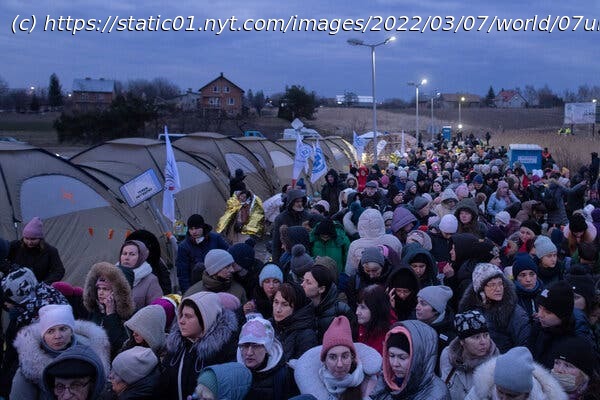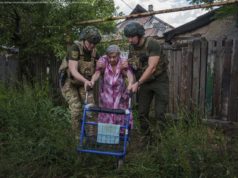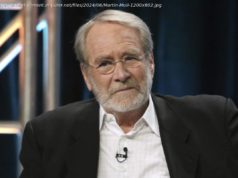Kyiv March 7, 10:54 p.m.
Moscow March 7, 11:54 p.m.
Washington March 7, 3:54 p.m.
Russian artillery strikes hit …
Kyiv March 7,10:54 p.m. Moscow March 7,11:54 p.m. Washington March 7,3:54 p.m. Russian artillery strikes hit residential areas in the southern city of Mykolaiv but Ukrainian forces said they maintained control of the city after fierce fighting. Michael Schwirtz and Marc Santora As Russia steps up increasingly indiscriminate assaults on civilian targets and infrastructure, fears were growing on Monday that thousands of Ukrainians could die in the coming days if urgent relief does not arrive soon and humanitarian cease-fires fail to take hold. Ukraine dismissed a Kremlin proposal to evacuate hundreds of thousands of people not to the West, but to Russia and its ally Belarus, as a cynical attempt to distract from its failure to stop shelling “evacuation corridors” where civilians are attempting to flee. Oleksiy Danilov, the head of Ukraine’s National Security and Defense Council, accused Russia of blocking relief from reaching those most in need. As Russian forces unleashed new attacks on cities — and President Volodymyr Zelensky warned that more were to come — the toll on civilians was growing. An adviser to the president, Mykhailo Podoliak, said that 202 schools,34 hospitals and more than 1,500 residential buildings have been destroyed since the war began, and that nearly 1,000 towns and villages are completely deprived of electricity, water and heat. Here are the latest developments: Ukrainian and Russian delegations were expected to meet on Monday for a third round of talks that have so far yielded nothing. A previous agreement on creating humanitarian corridors to allow civilians to escape has fallen apart, amid Ukrainian allegations that Russia is shelling escape routes. Attempts to bring supplies into besieged coastal city of Mariupol failed again on Monday, after planned evacuations were canceled over the weekend because of continued Russian attacks. Anton Gerashchenko, an adviser to the Ukrainian government, pleaded for help on Facebook: “There are no medicines, products, heating, the central water supply system is broken.”. A huge explosion on the outskirts of the southern city of Mykolaiv lit up the sky and Russian artillery fire struck residential areas as Russian troops continued their push to take the city, a vital point in their attempt to capture Ukraine’s entire Black Sea coast. But after another day of fierce fighting outside the city, the Russians were unable to force their way into it. Secretary of State Antony J. Blinken, visiting Lithuania at the start of a tour of the Baltic States, repeated the U.S. commitment to defend the NATO ally in case of a Russian attack. He also said that 400 additional U.S. troops would arrive in Lithuania within days, part of an expanded American military deployment in the region in the wake of the Russian invasion. More than 1.5 million refugees from Ukraine crossed into neighboring countries in the first 10 days of the war, making it the fastest growing refugee crisis in Europe since World War II, according to the United Nations. Farnaz Fassihi UNICEF’s executive director, Catherine Russell, told the U.N. Security Council that, since the conflict in Ukraine began, at least 27 children have been killed and 42 have been injured. She said half of the 1.7 million refugees fleeing Ukraine are children. “So many children have been deeply traumatized,» Ms. Russell said. Glenn Thrush President Volodymyr Zelensky of Ukraine will address the British House of Commons via live video conference from Kyiv on Tuesday at noon Eastern time. It will be the first time any foreign leader has addressed the chamber remotely. Commons Speaker Lindsay Hoyle announced the address on Monday, saying, “Every parliamentarian wants to hear directly from the president.” Farnaz Fassihi The number of people who have fled Ukraine has reached 1.7 million in just 11 days, the United Nations said — the biggest and fastest dislocation in Europe in decades. Michael Crowley The White House press secretary, Jen Psaki, said that federal privacy law prevented the U.S. government from discussing the detention in Russia of the WNBA star Brittney Griner without her written consent. Farnaz Fassihi A small team from the United Nations is in Russia to push for de-escalation of the conflict and facilitate humanitarian operations, said Stéphane Dujarric, the chief U.N. spokesman. The team has met with officials from Russia’s defense and foreign ministries and is asking for the safe movement of civilians and U.N. staff members, Mr. Dujarric said. Andrew E. Kramer Ukrainian jets and an antiaircraft missile shot down two Russian airplanes over the city of Kyiv and in a nearby area, the commander of the Ukrainian military said in a statement on Monday evening. Several large explosions were heard in central Kyiv after an air-raid siren sounded, but it was not immediately possible to confirm the downing of Russian airplanes. Western governments have said Ukraine’s air defense systems are still operating 12 days into the war and that most of its air force is intact. Valery Zaluzhny, the Ukrainian Army commander, said one Russian plane was shot down over the city at 8:30 p.m. and that a second was shot down in aerial combat near the capital. Eric Schmitt Russia is trying to recruit Syrian fighters to join its forces in Ukraine, a sign that the Kremlin is frustrated with the pace and scope of operations in its invasion, a senior Pentagon official said on Monday. American analysts do not have any details on the number of Syrian recruits; where they are in Syria; how they are being trained, if at all, by the Russians; or whether any have actually traveled yet to Ukraine, said the Pentagon official, who spoke on the condition of anonymity to discuss confidential intelligence assessments. The official sought to portray the recruiting effort, reported on Sunday night by The Wall Street Journal, as an indicator of how desperate Russia is to reverse its stalled offensive across most of the country’s north, including on Kyiv, the capital, and Kharkiv, the nation’s second-largest city, which has come under intensifying Russian missile and artillery bombardment. “We find it noteworthy that he believes that he needs to rely on foreign fighters to supplement what is a very significant commitment of combat power inside Ukraine as it is,” said the Pentagon official, referring to President Vladimir V. Putin of Russia. Russia has deployed into Ukraine virtually all of the more than 150,000 forces that had assembled on the country’s borders, the Pentagon official noted. If Syrian fighters join in, they would add to the steady flow of foreigners streaming into Ukraine on both sides of the conflict. Some of the Syrians have experience in urban combat, which could be the next phase of operations in Ukraine. Even before the invasion began on Feb.24, Russian mercenaries with experience fighting in Syria and Libya were covertly trickling into two rebel territories in eastern Ukraine, helping to lay the groundwork for war, according to two senior European security officials. The mercenaries, who number about 300, are with the Russian paramilitary group Wagner and arrived in the separatist enclaves of Donetsk and Luhansk wearing civilian clothes, according to the European officials. Western intelligence services have tracked them leaving Libya and Syria and arriving in Russian-controlled Crimea, from where they have filtered into the rebel territories, one of the officials said. Victor Mather President Vladimir V. Putin of Russia loves judo. His enthusiasm for the sport even extended to body-slamming opponents in an instructional video in 2008. As recently as 2019, he was filmed throwing Olympic judokas in a training session. Such footage is of a piece with his well-known bare-chested fishing and horseback riding clips. This love of judo helped pave the way for Mr. Putin’s appointment in 2008 to the position of honorary president of the International Judo Federation. But shortly after the invasion of Ukraine, the federation suspended Mr. Putin from that position. And on Monday, in a one-sentence news release, it said he had formally “been removed from all positions held in the International Judo Federation.” Glenn Thrush President Biden just wrapped up a 90-minute video conference with Chancellor Olaf Scholz of Germany, Prime Minister Boris Johnson of Britain and President Emmanuel Macron of France, who has been talking regularly with President Vladimir V. Putin of Russia and urging him to take steps to ease the humanitarian catastrophe in Ukraine. The White House provided few details of the call, other than to say that the leaders had shared intelligence and observations about recent interactions with Putin and top Ukrainian officials. Eric Schmitt Defense Secretary Lloyd J. Austin III has sent 500 additional troops from the United States to Europe to help reassure NATO allies and deter Russia from advancing beyond Ukraine, a senior Pentagon official said on Monday. Over the weekend, Mr. Austin ordered KC-135 refueling aircraft and aircrews to Suda Bay, Greece; air support units to Poland and Romania; and ordnance and maintenance support troops to Germany, the official said. The new deployments bring to more than 15,000 the number of troops the Pentagon has sent to Europe, including the Baltics and NATO’s eastern flank, in the run-up to Russia’s invasion on Feb.24 and since then. A total of more than 100,000 U.S. troops are now stationed in Europe on permanent or temporary assignments, the Pentagon said. Steven Lee Myers One of the paradoxical things about Vladimir V. Putin’s increasingly authoritarian rule of Russia was how relatively open society always remained. For all the state’s control of media, people could read or watch what they wanted, including foreign newscasts like BBC and CNN. The internet was largely unfettered, a portal to the rest of the world. Unlike, say, China, you could criticize the president with some assurance that the police would not knock at the door. Until now. As the war in Ukraine grinds on, Mr. Putin has strangled the vestiges of a free press to justify an invasion that has been almost universally condemned — and with that moved closer to the stultifying orthodoxy of the Soviet Union. The result will be to isolate the country, as Mr. Putin has isolated himself, leaving it with a one-sided view of the world no longer subject to debate. Two of the remaining flagships of the country’s own independent media — Ekho Moskvy, the liberal radio station, and TV Dozhd, or Rain, a digital upstart — went off the air last week, hounded by the authorities for reporting accurately on Ukraine. Access to Facebook, Twitter and TikTok, platforms pulsing with opposition to Mr. Putin’s war, have been blocked, as have other online sites in Russia. Many foreign news organizations have withdrawn correspondents or stopped reporting in Russia after Mr. Putin on Friday signed into law a measure to punish anyone spreading “false information” with up to 15 years in prison. “Just two weeks ago it was not possible to imagine how quickly most of it would get closed,” said Nina L. Khrushcheva, a professor of international affairs at the New School in New York City. “And yet it is.” Beyond the immediate impact on Russians’ ability to learn about the war next door, Mr. Putin seems to have crossed a threshold in the country’s history. He is sequestering Russian society to a greater extent than at any time since the last Soviet leader, Mikhail S. Gorbachev, launched a policy in 1986 called glasnost, which became known as “openness” but more precisely means “the act of giving voice.” Access to foreign news reporting and independent voices on social media have challenged the Kremlin’s monopoly on state media — as Mr. Gorbachev’s effort broke the Soviet monopoly on truth. Independent outlets have, at great risk to reporters’ personal safety, uncovered abuses during Russia’s war in Chechnya, repression of political and human rights, and the extraordinary wealth of people close to Mr. Putin — all taboo subjects in state media. The impact of silencing them could be much broader and last much longer than the war, pushing the country from authoritarian rule to something worse. “Putin is trying to turn Russia back into a totalitarian dictatorship of the pre-Gorbachev days,” said Michael McFaul, the former American ambassador to Russia who is director of the Freeman Spogli Institute for International Studies at Stanford University. “He will eventually fail, but he will do great damage to Russian society in trying.” The Kremlin’s propaganda and restrictions have already disconnected ordinary Russians from the horrific violence ravaging cities across Ukraine — even those with relatives on the ground telling them otherwise. They have covered up the Russian military’s difficulties, as well as the human costs to Ukrainians that Mr. Putin claims to be defending. Those who watch Russian television instead see the country’s troops taking part in a largely bloodless “special military operation,” to protect Ukrainian civilians from a neo-Nazi government. In this alternate reality, Russian troops are distributing aid to civilians or helping evacuate them to safety; Ukrainians are fabricating reports about Russian military setbacks — or even shelling their own cities. The result has been to create a blinkered view of the war that few dare pierce. Not a single deputy in the State Duma, the lower house of Parliament, voted against the bill criminalizing “fake news.” “There is less and less access to accurate information from the West amid the relentless pounding from increasingly hysterical state propaganda, which admittedly, is having its effect,” said Sergey Radchenko, a professor at the Johns Hopkins School of Advanced International Studies Europe. Mr. Putin was a lieutenant colonel in the K.G.B., serving in the former East Germany, when glasnost was introduced. He later said that he, too, recognized the need for the Soviet Union to become more open. Only up to a point, though. From the start of his presidency in 2000, he understood that the media — especially television — had the power not only to shape his political image but also to help him govern. He moved quickly to regain control of the main television networks from two oligarchs, Vladimir A. Gusinsky and Boris A. Berezovsky, who championed agendas not always in line with the Kremlin. But printed media faced less direct pressure, and the internet burst with new outlets, making Russian and foreign sources widely accessible. Independent media like Ekho Moskvy were mostly left alone, serving as quasi independent sources of news and debate, at least for the educated elite. The station was itself a child of glasnost, founded in 1990 by frustrated employees of state radio who wanted a platform for genuine political discussion. Russians attributed the station’s survival to its savvy editor in chief, Aleksei A. Venediktov, and the Kremlin’s need for both a safety valve for liberal debate and a source of information separate from its own propaganda. It was there that opposition figures long barred from state television could give interviews, and anchors could debate the impact of Kremlin policies on regular people. Before it closed last week, the outlet promoted voices critical of the war and of Mr. Putin himself. Russia’s prosecutor general accused it of spreading “deliberately false information.” As in many spheres of Russian life, tolerance for contrary or unorthodox views in the media has been eroding for years. Maria Snegovaya, a visiting scholar at George Washington University and a fellow at the Center for New American Security in Washington, said there has been a “qualitative change” in Mr. Putin’s government. She dated it to the protests that shook Mr. Putin’s ally in Belarus in 2020; the poisoning of the Kremlin’s arch critic, Aleksei A. Navalny, and his subsequent imprisonment; and the constitutional changes enacted last year allowing Mr. Putin, now 69, to extend his presidential terms to 2036. All generated significant opposition in Russia that seeped into the public discourse, despite the Kremlin’s effort. Mr. Navalny became famous for investigations devoted to exposing corruption, including a 143-minute documentary on YouTube after his arrest that accused Mr. Putin of secretly building a palace on the Black Sea coast. “I always refrained from calling Russia totalitarian, but I think the military situation, the war, has pushed the authorities toward that,” Ms. Snegovaya said from Bulgaria where she was assisting Russians who fled the country in recent days. A more severe step would be creating an analog to China’s Great Firewall, which restricts access to foreign websites on the outside and strictly controls what is allowed inside. Russia calls its vision for a sovereign cyberspace the RuNet, though it has so far stopped short of imposing total control. In today’s digitally connected world, Mr.
Домой
United States
USA — Events Russia wants to recruit Syrian fighters to help it in Ukraine, the...






